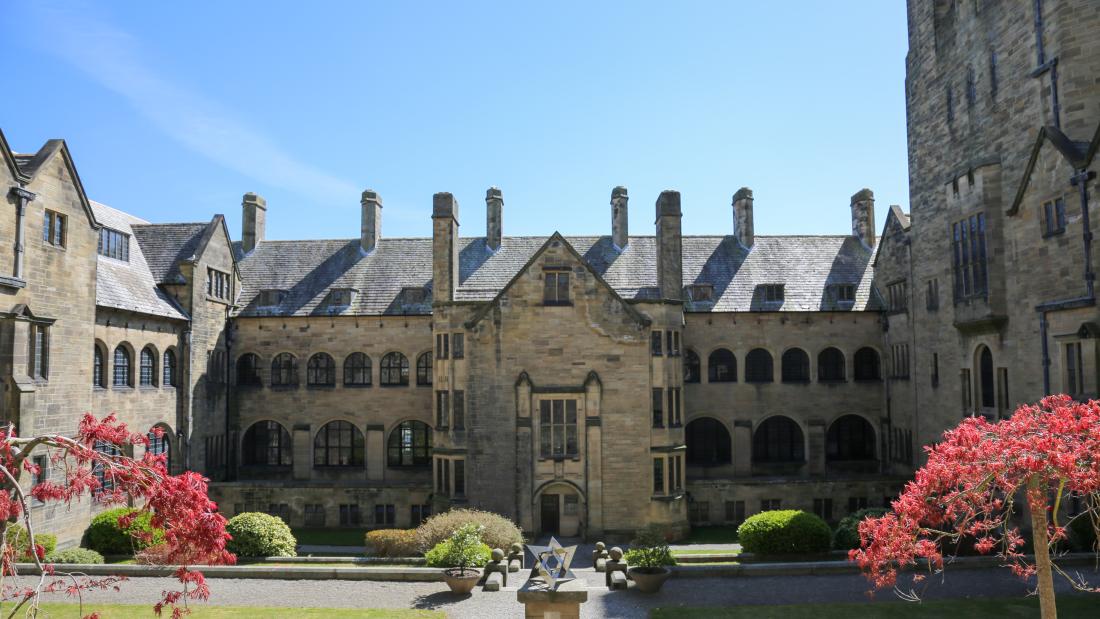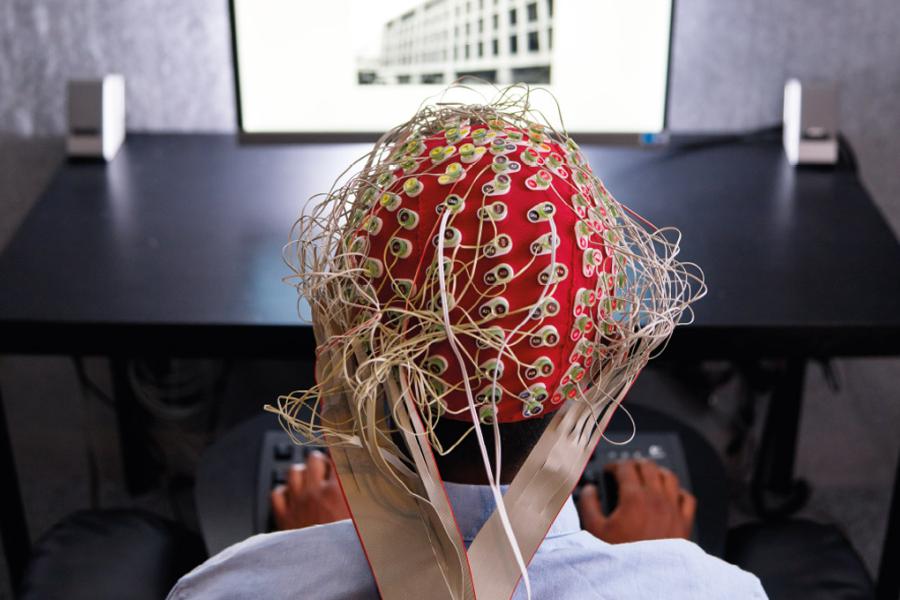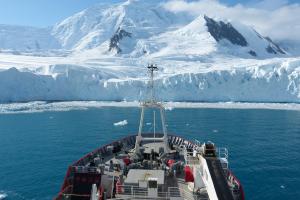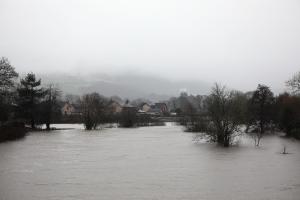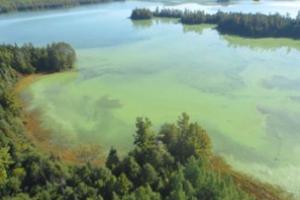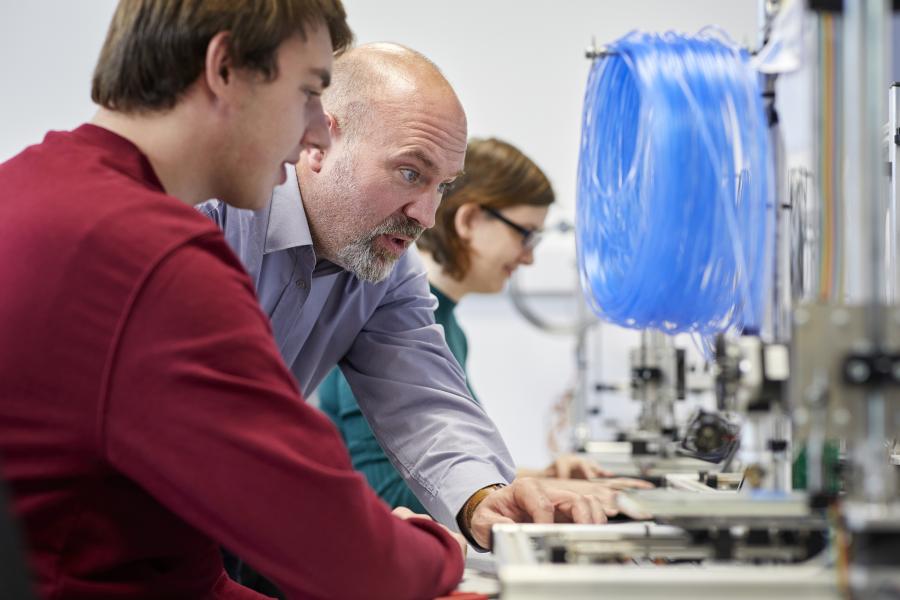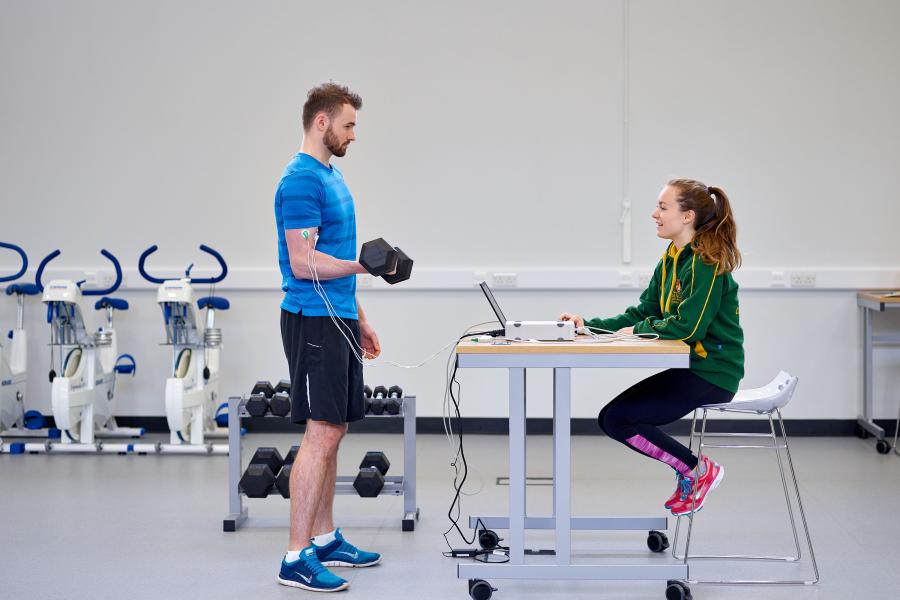2021 Research Excellence Framework Results - Bangor University
| Percentage of the submission meeting the standard for: | ||||||||||
| Main panel | Unit of assessment number | Unit of assessment name | Quality Profile | FTE of submitted staff | % of eligible staff submitted | 4* | 3* | 2* | 1* | Unclassified |
| A | 3 | Allied Health Professions, Dentistry, Nursing and Pharmacy | Overall | 22.16 | 100 | 48 | 47 | 2 | 3 | 0 |
| Outputs | 44 | 47 | 4 | 6 | ||||||
| Impact | 33 | 67 | ||||||||
| Environment | 88 | 13 | ||||||||
| A | 4 | Psychology, Psychiatry and Neuroscience | Overall | 28.76 | 100 | 34 | 52 | 12 | 1 | 1 |
| Outputs | 22 | 57 | 18 | 1 | 1 | |||||
| Impact | 67 | 33 | ||||||||
| Environment | 25 | 63 | 13 | |||||||
| B | 7 | Earth Systems and Environmental Sciences | Overall | 75.30 | 100 | 58 | 38 | 4 | 0 | 0 |
| Outputs | 43 | 52 | 6 | |||||||
| Impact | 92 | 8 | ||||||||
| Environment | 63 | 38 | ||||||||
| B | 12 | Engineering | Overall | 25.55 | 100 | 27 | 53 | 15 | 5 | 0 |
| Outputs | 20 | 67 | 11 | 2 | ||||||
| Impact | 50 | 17 | 17 | 17 | ||||||
| Environment | 13 | 63 | 25 | |||||||
| C | 17 | Business and Management Studies | Overall | 21.70 | 100 | 17 | 61 | 20 | 1 | 1 |
| Outputs | 22 | 57 | 17 | 2 | 2 | |||||
| Impact | 17 | 67 | 17 | |||||||
| Environment | 63 | 38 | ||||||||
| C | 21 | Sociology | Overall | 28.70 | 100 | 23 | 41 | 31 | 4 | 1 |
| Outputs | 18 | 43 | 31 | 7 | 1 | |||||
| Impact | 50 | 50 | ||||||||
| Environment | 13 | 88 | ||||||||
| C | 24 | Sport and Exercise Sciences, Leisure and Tourism | Overall | 16.80 | 100 | 65 | 35 | 0 | 0 | 0 |
| Outputs | 55 | 45 | ||||||||
| Impact | 75 | 25 | ||||||||
| Environment | 88 | 13 | ||||||||
| D | 26 | Modern Languages and Linguistics | Overall | 32.80 | 100 | 29 | 52 | 17 | 2 | 0 |
| Outputs | 23 | 49 | 24 | 4 | ||||||
| Impact | 33 | 67 | ||||||||
| Environment | 48 | 40 | 13 | |||||||
| D | 27 | English Language and Literature | Overall | 18.80 | 100 | 35 | 37 | 28 | 0 | 0 |
| Outputs | 55 | 32 | 13 | |||||||
| Impact | 25 | 75 | ||||||||
| Environment | 10 | 78 | 13 | |||||||
Bangor research in Top 30 for societal impact in UK
Bangor University’s research has been ranked highly in the Government’s most recent Research Excellence Framework (REF2021), with 85% judged to be world-leading (4*) or internationally excellent (3*).
Bangor University’s research delivers social, cultural, and environmental benefits, from advances in healthcare to combatting global environmental change and finding the energy solutions of the future.
Bangor’s Sport and Exercise Sciences is ranked in the Top 5 overall in the UK. With an excellent score in terms of the societal impact of its world-leading and internationally excellent research, our leading sport scientists are carrying out research into mental resilience, elite performance, dietary behaviour and metabolism, and exercise and vascular health.
Bangor’s research is changing the world in Earth Systems and Environmental Sciences and is 1st in the UK for the impact of its research. With one of the largest groups of environmental scientists in the UK, our research is ranked sixth in the UK and 1st in Wales for research power.
Our scientists are tackling climate change and addressing some of the planet’s greatest environmental issues on land and sea, such as the overuse of single-use plastics, and protecting the variety of species and ecosystems through biodiversity conservation research.
Our research in Allied Health Professions, Dentistry, Nursing and Pharmacy is ranked 15th overall in the UK. This work supports the University’s Welsh Government-backed flagship plans for a North Wales Medical School at Bangor University from 2024 that will build on our research strengths in Human Sciences and help develop future health and social care that is sustainable, place-based and bolsters the growth of the regional life sciences sector.
More than 150 UK universities and other research institutes were assessed in the exercise.
These results put Bangor University at the forefront of developing significant responses to the challenges of the world we live in, namely sustainability, low carbon, preventative health, promoting technology and innovation, and culture and the arts.
It is at the edge of disciplines that researchers achieve real innovation and Bangor’s interdisciplinary globally significant research is demonstrating real-world impact.
Our ranking of second overall in Wales demonstrates our commitment to supporting research, industry expertise and civic engagement for the benefit of the economy and society in North Wales and beyond.
Code of Practice
Research and Impact Case Studies by Units of Assessment
- 3 Allied Health Professions, Dentistry, Nursing and Pharmacy
- 4 Psychology, Psychiatry and Neuroscience
- 7 Earth Systems and Environmental Sciences
- 12 Engineering
- 17 Business and Management Studies
- 21 Sociology
- 24 Sport and Exercise Sciences, Leisure and Tourism
- 26 Modern Languages and Linguistics
- 27 English Language and Literature
Submitted Case Studies
Dementia is a global public health priority with no cure and limited medical treatment. Fortunately there is a growing range of drug-free treatments for health and care services. Bangor University leads interdisciplinary research in dementia care, with a focus on visual arts activities as therapeutic services.
Through a combination of professional training, public events and the success of the collaboratively produced online practitioners’ guide, ‘Dementia & Imagination’, for arts and health service delivery, many people with dementia heir carers improved their wellbeing and quality of life. Care professionals showed improved skills and confidence.
The research also led to enhanced dementia care service provision, improved public perceptions and public policy influence including changes to national dementia service delivery whereby Age Cymru secured additional funding to extend the arts services in dementia care service for 2 years. The service delivered an additional 864 arts sessions across care homes in Wales and in total 1840 art sessions have been delivered to 25% of care homes across Wales.
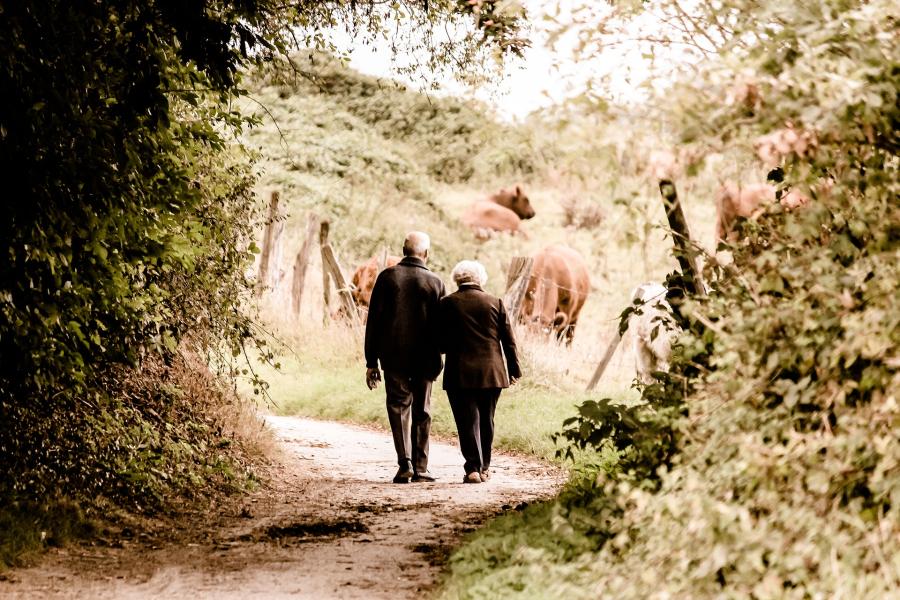
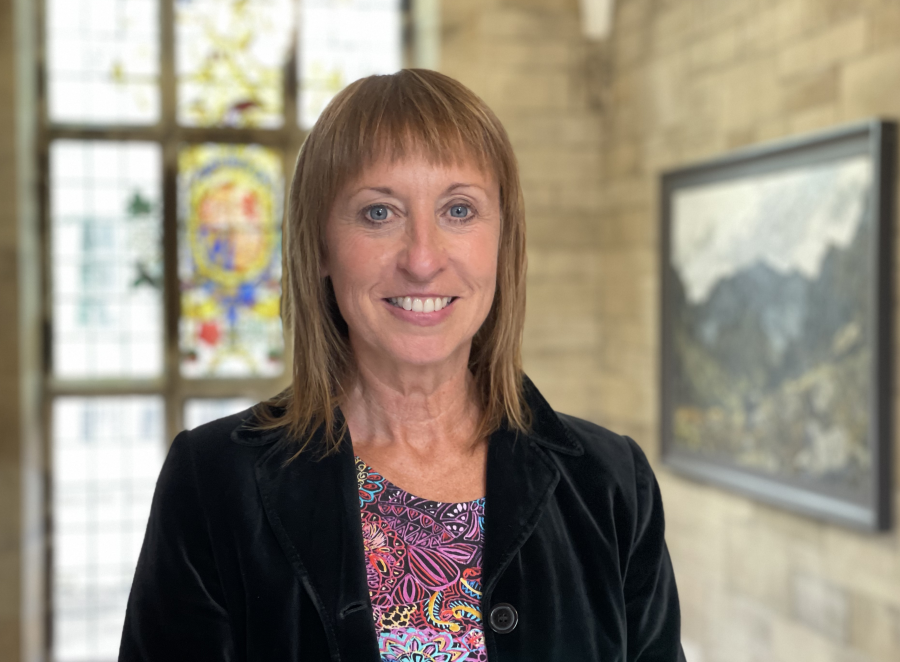
Our research showed how arts services improved the quality of life of people affected by dementia, with £5 of social value generated for every £1 invested. We evidence improvements to care and service provision, public perceptions and influence on public policy. Most importantly, our research enabled the promotion of the wellbeing and quality of life of people with dementia and those who care for them.
The research also led to enhanced dementia care service provision, improved public perceptions and public policy influence including changes to national dementia service delivery whereby Age Cymru secured additional funding to extend the arts services in dementia care service for 2 years. The service delivered an additional 864 arts sessions across care homes in Wales and in total 1840 art sessions have been delivered to 25% of care homes across Wales.
Researchers
Related Academic Units
Research lead by Bangor University has informed the design of NHS dentistry services in Northern Ireland (NI) and Wales. This has included national contract reform programmes and the use of infrastructure funding to promote ‘skill-mix’ in Wales.
With 50.2% of the adult population in Northern Ireland (NI) and 54.8% in Wales using the NHS dental service, policy objectives in both nations are to increase access to services, prevention focused dentistry and the quality of care provided. Skill-mix is also a key policy area in Wales.
Bangor University led an assessment of the influence of financial incentives on the provision of NHS dentistry. The results directly informed contract reform decisions made in both the home nations, and helped them navigate the COVID-19 pandemic and its consequent dramatic reduction in clinical activity.
The research suggested that Dental Therapists (DTs) were comparable with general dental practitioners for undertaking check-ups in low-risk patients; the results of the process evaluation were fed-back early to the Welsh Government and helped to inform NHS contract reform.
As a result of this work, the Welsh Government commissioned Bangor University to establish the All-Wales Faculty for Dental Care Professionals (AWFDCP), in order to improve the quality of training for Dental Care Professionals across the nation.
Informed by Bangor’s research, AWFDCP is developing qualifications for Dental Hygienists and Dental Nurses and links to the on-going NHS Contract Reform process across Wales. This postgraduate NHS facility was initiated in January 2020 to promote a “step-up prevention and utilise the preventative-skills of the whole dental team to meet patients’ needs” across Wales. The AWFDCP now has two qualifications validated by the General Dental Council and by Skills Higher Education and Lifelong Learning in the Welsh Government.

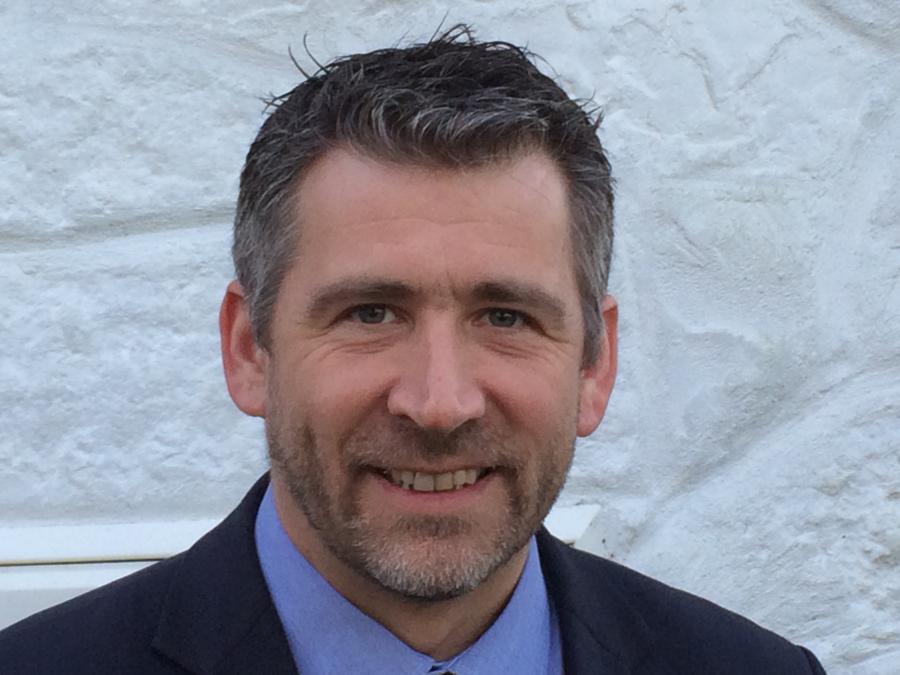
Our research has resulted in policy changes and strategic investment in Wales and has shaped dental contract reform policy in Northern Ireland (NI) and Wales and has helped to provide a step-change in dentistry training in Wales.
Researchers
- Professor Paul Brocklehurst
- Dr Lynne Williams
- Dr Zoe Hoare
Most Recent Research in this Area
Submitted Case Studies
Low literacy attainment affects one in five 15-year-olds in Europe, with consequences for a range of long-term prospects, but may be averted with early diagnosis of risk and timely interventions.
A Bangor-led international group of researchers developed the Multilanguage Assessment Battery of Early Literacy (MABEL) - the first freely-available, web-based resource, uniquely offering a battery of tests across five languages for monolingual, bilingual, and second language assessment. Primary beneficiaries of MABEL since September 2019 are 750 practitioners in 22 countries previously lacking objective, high quality, evidence-based assessments for early detection of children’s risk for, and manifestations of, literacy failure.
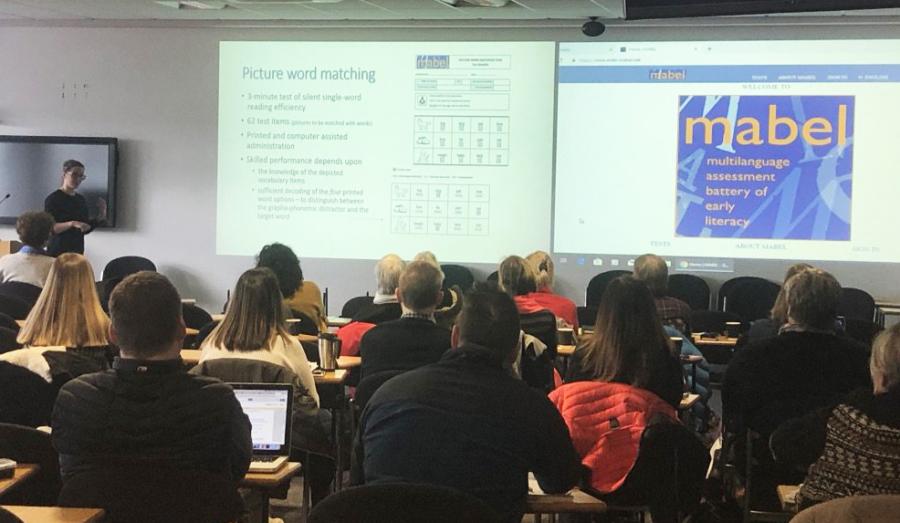
MABEL is the only multi-lingual battery for assessing monolingual, bilingual, and second language learners of any combination of the MABEL languages. Additionally, MABEL is the only available norm-referenced diagnostic battery specifically focusing on early literacy and related skills in Czech, Slovak and Welsh and is now being used by a broad range of practitioners.
Researcher
Related Research Group
Related Academic Units
Bangor University is internationally renowned for its mainstream influence on the quality of delivery of Mindfulness-Based Programmes and has been at the forefront of leading the translation of research into practice.
Mindfulness-Based Programmes (MBPs) can help people manage long-term mental health conditions such as depression and anxiety. Bangor University’s Rebecca Crane led the development of the Mindfulness-Based Interventions: Teaching Assessment Criteria (MBI:TAC) tool – the only tool that defines and assesses the elements of MBP teaching competence and fidelity for evidenced based MBPs - Mindfulness Based Cognitive Therapy (MBCT) and Mindfulness-Based Stress Reduction (MBSR).

Teacher training which includes the Mindfulness-Based Interventions: Teaching Assessment Criteria assessment leads to better outcomes (increased well-being and reductions in perceived stress) for Mindfulness-Based Programmes participants in mainstream settings.
Researchers
- Dr Rebecca Crane
- Dr Dusanna Dorjee
- Dr Catrin Eames
- Professor Richard Hastings
- Professor Jo Rycroft-Malone
- Professor Ian Russell
- Mrs Heledd Griffiths
Related Research Group
Related Academic Units
Millions of children in low- and middle-income countries (LMIC) experience inadequate learning opportunities and harsh punishment by caregivers. These are important risk factors for poor child development.
The provision of high quality, early childhood caregiving environments promotes long term benefits to children’s educational achievement, mental and physical health, and the economic prosperity of future generations in LMIC.
Research at Bangor has led to two highly effective intervention programmes to improve early childhood development in LMIC.
The first programme is The Irie Classroom Toolbox, an early childhood, teacher-training violence-prevention programme. The Irie Classroom Toolbox has shown benefits to children, teachers and the classroom environment. This includes large reductions (>65%) in violence against children by early childhood teachers and reductions in child behaviour problems, and increases to the quality of the classroom environment, teacher well-being and to child prosocial skills and inhibitory control. The Irie Classroom Toolbox has now been adopted by the Jamaican government’s Early Childhood Commission as the national training programme to train all early childhood practitioners and is also included as an example of an effective teacher-training programme in positive discipline by the World Health Organisation.
The second programme is The Group Reach Up and Learn parenting programme that promotes responsive parenting and stimulation in the home. This programme has been adapted for use in seven countries across South Asia, the Middle East and South America. For example, the group-based parenting programme has been adopted for use in Bangladesh where it is integrated into the primary health care system and it has also been adopted by the Mayor of Bogota for use with vulnerable families with children under two years of age across the city. It has also been adapted for use with the refugee population in Jordan, Lebanon and Syria by the International Rescue Committee.
This research into evidence-based programmes to promote young children’s development in LMIC has reached over 5,500 teachers, and more than 7,000 mothers, and has ultimately benefitted over 500,000 children globally.
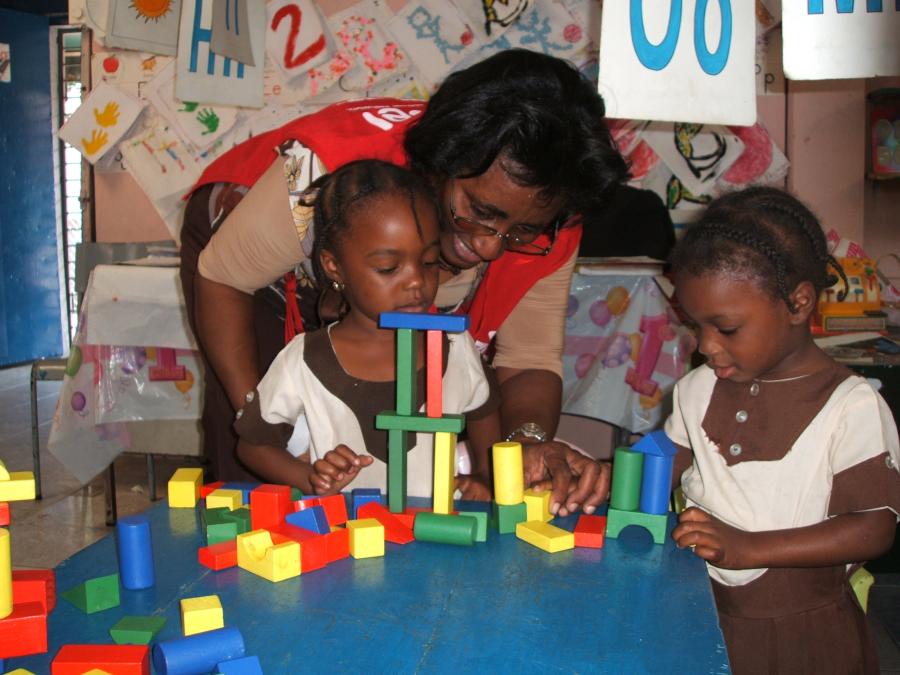

This programme of work involves developing, implementing, evaluating and scaling-up early childhood interventions to promote young children’s development in low- and middle-income countries. The work is very fulfilling and I feel very privileged to work in partnership with so many committed colleagues across different countries.
Most Recent Research in this Area
Submitted Case Studies
Mobile bottom-fishing provides 35% of global catches worth over £27 billion, but it can cause serious ecological damage.
The impact of bottom fishing is often perceived as an environmental risk. Bangor’s research has provided quantitative evidence-based tools to assess the ecosystem effects of bottom-fishing at regional and global scales.
This underpinning research provides the tools to estimate bottom fishing impacts worldwide, which is essential for the fishing industry, conservation, management, and certification bodies to guide the choice of management measures needed to meet sustainability objectives. Significantly, because of these estimated globally applicable parameter values, Bangor’s model can be applied to data-poor fisheries, e.g., much of the southern hemisphere.
The tools have been the primary tool recommended for use by the Marine Stewardship Council to ensure biodiverse and resilient seabeds for their certified fisheries. They have been endorsed by the International Council for the Exploration of Seas for use in the EU Marine Strategy Framework Directive to achieve key policy requirements and were used by Welsh Government to underpin a consultation and decision on scallop dredging in a marine protected area.
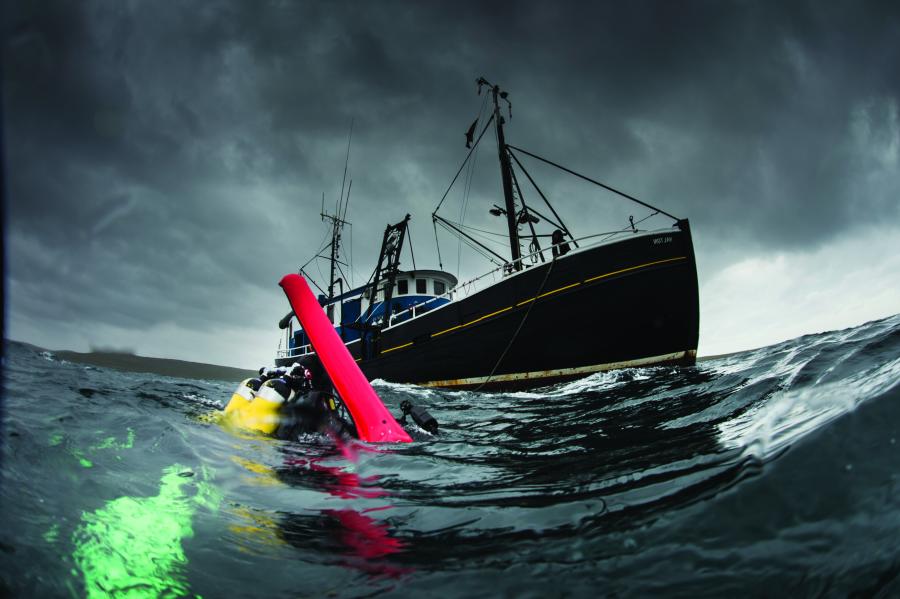
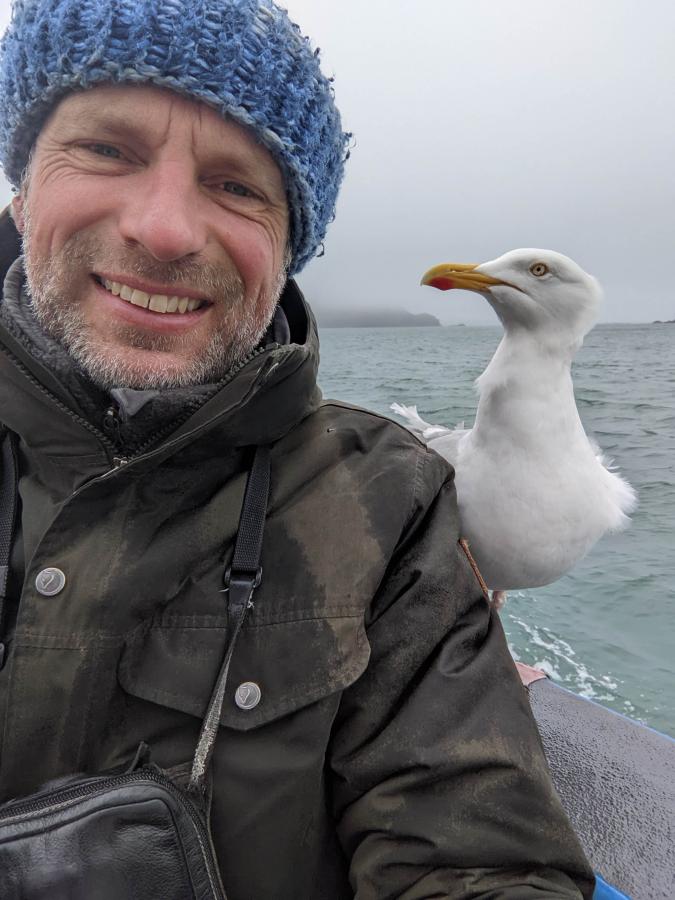
We collated all existing research that studied the impact of bottom trawling on seabed habitats, and synthesized this large body of research in a meta-analysis to provide the best-available estimates of the depletion of seabed fauna by bottom trawling and their recovery rates. By using these estimates in an ecological model, we can provide predictions of the regional scale impact of bottom trawling activity that stakeholders such as MSC require.
Greenhouse gas research has impacted policy and industry through the generation of new country-specific nitrous oxide emission factors.
Agriculture contributes towards greenhouse gas production, via nitrous oxide emissions following nitrogen inputs to soil, via methane emissions from livestock and the management of their manures, and via carbon dioxide following land use change and use of machinery that runs on fossil fuels. However, agricultural land also offers the opportunity to remove greenhouse gas from the atmosphere through carbon sequestration– especially peat and wetlands.
Dave Chadwick led the Defra and Devolved Administrations funded >£6.5M consortium project to improve the nitrous oxide component of the UK’s agricultural greenhouse gas emissions inventory. The aim of the project was to generate new nitrous oxide emission data from the range of nitrogen inputs to soil (fertilisers, manures and dung & urine deposited by grazing livestock) to contribute to the derivation of country specific nitrous oxide data for use in the UK’s greenhouse gas inventory. This was achived by measuring nitrous oxide fluxes from 37 field plot-scale experiments throughout England, Scotland Northern Ireland and Wales.
Bangor’s evidence significantly lowered calculated nitrous oxide contributions in the UK’s Agriculture greenhouse gas Inventory and informed changes to guidelines at the international level. The research also highlighted that enteric methane now represents the greater proportion of the UK’s total agriculture greenhouse gas Inventory (expressed as carbon dioxide equivalents). Bangor has also worked with red meat /and dairy sectors in Wales to enable co-identification of practical greenhouse gas emission mitigation practices.
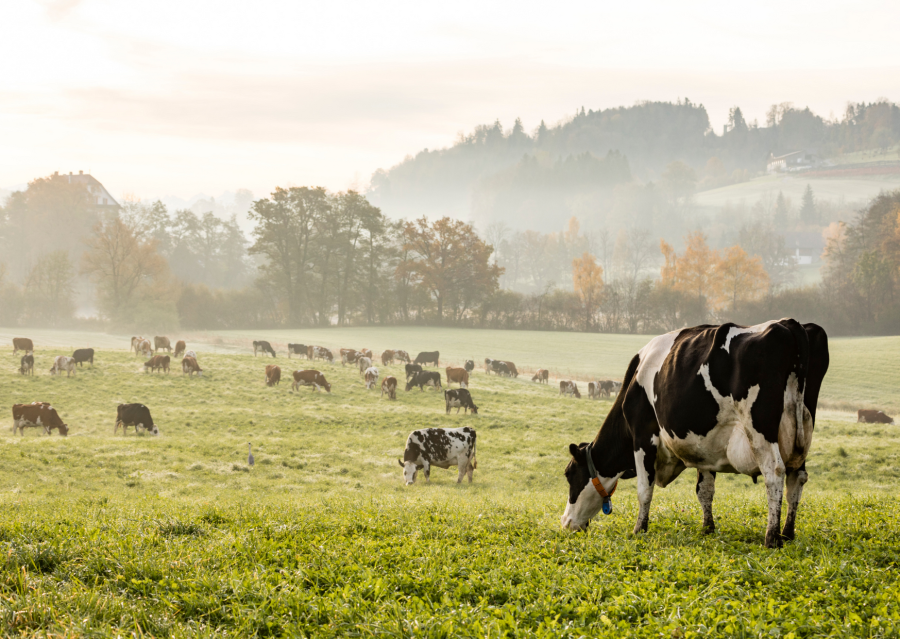
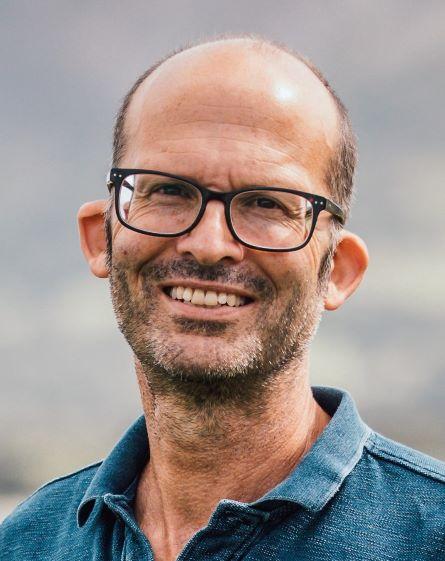
The new improved Agriculture greenhouse gas emissions inventory now better reflects the UK’s range of climates, soils and nitrogen management, as well as the UK’s livestock breeds and their diets. Whilst the reduction in total greenhouse gas emissions that has resulted from the new accounting method does not represent mitigation per se, it does mean that less carbon sequestration is required to offset the sector’s greenhouse gas emissions. This means that there is greater potential to sustainably intensify on some land, sparing other land which is more suitable for delivering other ecosystem services, including climate regulation via carbon sequestration.
Research, funded by the Department for International Development (IRRI), demonstrated that the adoption of a better-cross strategy, where rice-breeders more carefully select parental lines before crossing, improves efficiency in rice breeding.
IRRI rice breeding programmes advocated a high-volume cross strategy, based on the assumption that all crosses are equally likely to succeed, hence the probability of finding a beneficial cross increases as more crosses are made.
This assumption was rejected by Bangor researchers because it is based on the extraordinary premise that the rice-breeder has no ability to choose crosses that are more likely to succeed.
The research showed that the better-cross strategy had more power to succeed in breeding a difficult-to-breed varietal type with aromatic grain, for which previous conventional breeding had limited success globally and none in Nepal.
It resulted in the improved rice variety (Sunaulo-Sugandha), which provides food security and household incomes to Nepalese smallholder farmers of over £1million per year. Bangor’s research success also led to a paradigm shift in the International Rice Research Institute, which adopted Bangor’s better-cross strategy in 2014 in a key project ‘Transforming Rice Breeding’.
It resulted in the improved rice variety (Sunaulo-Sugandha), which provides food security and household incomes to Nepalese smallholder farmers of over £1million per year. Bangor’s research success also led to a paradigm shift in the International Rice Research Institute, which adopted Bangor’s better-cross strategy in 2014 in a key project ‘Transforming Rice Breeding’.
This increased efficiency of the International Rice Research Institute innovation-transfer to rice farmers globally, with a minimum estimated return of £36,770,000 per year in 2020.
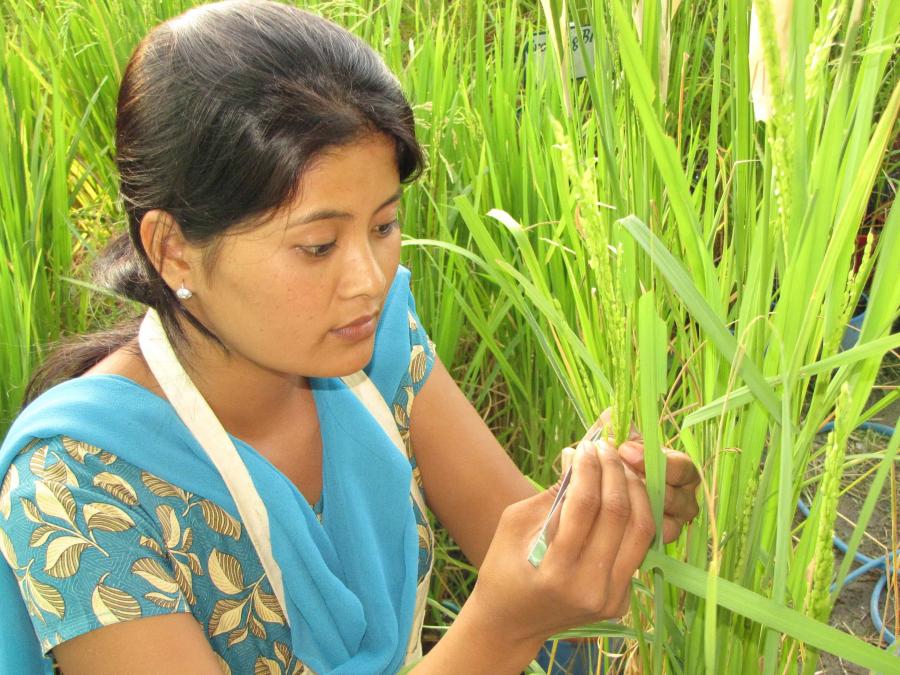
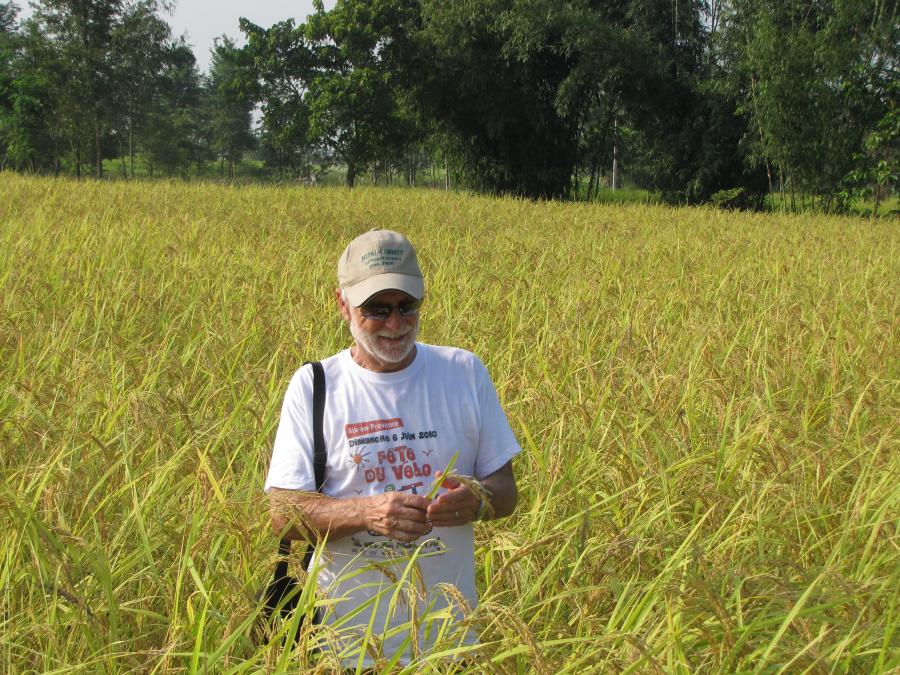
Globally, the Bangor-led research has had a significant impact on the activity of the International Rice Research Institute (IRRI)’s public-good rice breeding programme. Switching to the better-cross strategy of rice-breeding was shown to increase efficiency, by reducing the considerable resources used for crossing, halving the land required for growing the progeny of crosses by reducing the wastage on failed crosses, and improving the quality of the crosses.
Bangor University’s research partnership with World Agroforestry (ICRAF) produced a paradigm shift in agronomy, supporting agroecological transitions across three continents, made hugely more urgent by the fertiliser and food price crises driven by the war in Ukraine.
Many smallholder farmers, collectively responsible for a large proportion of global food security, lack locally suitable agricultural practices that regenerate rather than degrade the environment.
Applying Bangor’s ‘options by context’ (OxC) approach profoundly changed international, national and private sector policy and practice across 15 countries in Africa, Asia and Latin America.
OxC supports local innovation by farmers through fostering the transition to more agroecological farming practices, including agroforestry – the integration of trees in fields and farming landscapes. These maximise the use of natural processes, such as biological nitrogen fixation, rather than forcing agricultural systems with external inputs.
Diverse and inclusive agroecological options for major crops from corn to coffee and cocoa, that result from applying this approach, are already increasing food security, farm income and environmental resilience for over two million people, restoring over 2.5 million ha of land, through investment of over £101 million in projects using OxC.
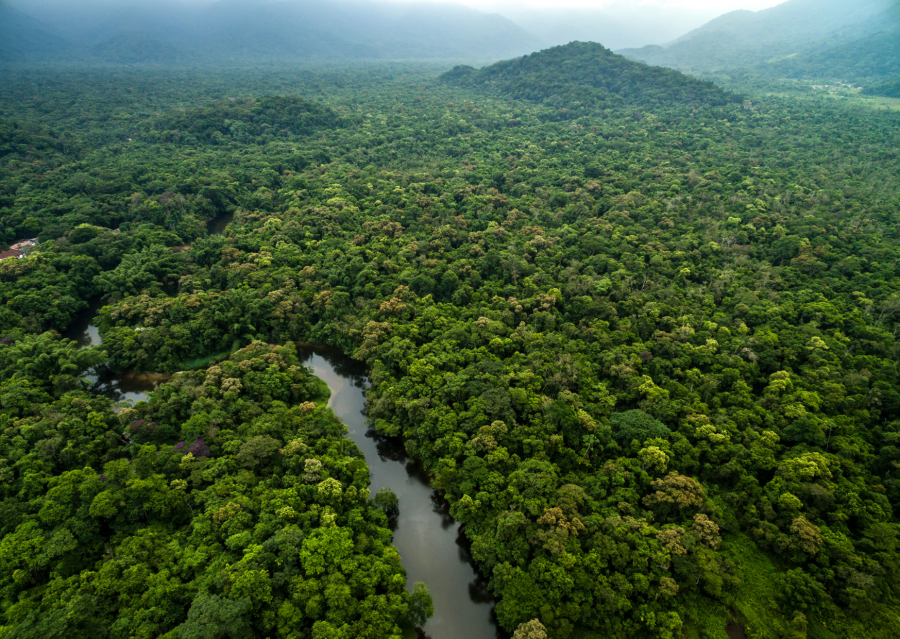
Dr Fergus Sinclair, Director of the Bangor-ICRAF research partnership said
Innovation in agronomy by large numbers of smallholder farmers will need to accelerate if global commitments to end hunger are to be achieved in the face of major climate and other global change that are both caused by, and impact, agriculture. Efforts to implement OxC approaches establish that a paradigm shift in agronomic innovation is well underway. Whether it will be sustained will largely depend on the demonstrable extent to which it is successful in accelerating development impact.
Researchers
Related Research Group
Related Academic School
Related College
As evidenced by the SARS-CoV-2 pandemic, pathogenic viruses represent a major global threat to human health and wellbeing. Over the last decade, Bangor research has developed a range of analytical tools, technologies and models for the effective surveillance of harmful viruses in the wider environment, leading to risk-based industry standards.
Working in partnership with UK and devolved governments, our wastewater-based surveillance tools have been adopted, piloted and rolled out at the national scale for whole-community monitoring of COVID-19 incidence, to provide an early warning system to protect critical national infrastructure from SARS-CoV-2 outbreaks. It is also used as a decision support tool to show which city areas should be targeted for mass testing and allows evaluation of the success of COVID-19 mitigation measures.
With funding from Welsh Government, researchers monitored the changing state of the pandemic in Wales, supported and informed public health policy decisions, and built national capacity for future pandemic preparedness. It has highlighted the important role the wastewater industry plays in national public health.
Scientific excellence: Wales has pioneered the use of wastewater for national level COVID-19 surveillance. This was adopted by England and rolled out by the Joint Biosecurity Centre at 44 sites, scaling to 250 by 2021.
Disease incidence: The University was responsible for setting up a national-level wastewater monitoring programme for COVID-19 which covered 20 key sites and captured close to 70% of the Welsh population. This is now part of the Armakuni dashboard which reports on national disease incidence to support public health agencies in Wales. In addition, the work has supported targeted mass testing both in England and Wales.
Research excellence and impact: Wastewater research is highly novel and has produced eight journal papers underpinning the national science programme. The University has contributed expertise to international collaborative efforts to develop wastewater-based epidemiology best practice across Europe and further afield. The funding also provided opportunities to build on research strengths in Wales in environmental sciences, disease surveillance and pathogen genomics.
Research excellence and impact: Wastewater research is highly novel and has produced eight journal papers underpinning the national science programme. The University has contributed expertise to international collaborative efforts to develop wastewater-based epidemiology best practice across Europe and further afield. The funding also provided opportunities to build on research strengths in Wales in environmental sciences, disease surveillance and pathogen genomics.

We have been monitoring viruses like Norovirus and Hepatitis in human sewage for the last decade, as part of a programme to evaluate levels of these viruses in the community. Naturally, COVID-19 was added to our surveillance list and it showed viral levels in wastewater mapped really well onto the success of lockdown measures in the first COVID-19 wave and the emergence of the second wave.
Bangor-led research has demonstrated the negative social impacts that conservation can have for some of the poorest people in the world.
The research has profoundly altered how governments, industry and donors implement conservation: one of the world’s largest nickel mines (Ambatovy, Madagascar) has changed how it approaches biodiversity offsets, the Ugandan government has incorporated recommendations into its national offset strategy, and USAID has used research findings in funding decisions for a mine in Myanmar.
In Madagascar, Bangor-led research has influenced how the government and donors implement safeguards to reduce negative impacts of protected areas on the poor.
As part of the Forest4Climate&People project, researchers are working with Malagasy colleagues at the University of Antananarivo, to bridge the gap between policy makers and local communities in discussions about forest conservation and restoration. Tropical forests, such as those in Madagascar, store carbon which helps stabilize the global climate. There is therefore huge international attention on these forests and the high rates of deforestation. Unfortunately local people, the ones most affected by conservation policies, often lack a real voice in these discussions. The team made a film which gives voice to forest edge communities and their concerns and suggestions of how forest conservation efforts could be improved. Part of that film (Voices from the Forest) was shown at COP26 by Madagascar’s minister of environment and sustainable development.
Dr Neal Hockley, Senior Lecturer in Economic and Policy, School of Natural Sciences said,
Madagascar’s Ministry of Environment and Sustainable Development has been carrying out a major reform of its conservation policies and we, together with our Malagasy partners, have been working very closely with them, to ensure that our research informs their policy making in real time. This is the best way to ensure our research has a positive impact, not just on policy, but ultimately on thousands of people living around Madagascar’s protected areas.”
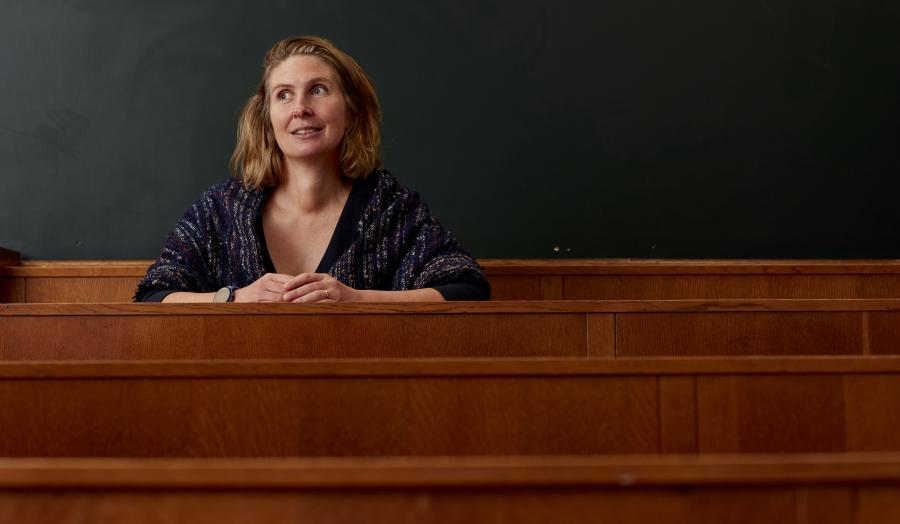
Our research, is meant to be useful so we are delighted to see it being used by policymakers, NGOs and companies. We work closely with a wide range of stakeholders, especially in Madagascar where Bangor University has had deep collaborations with research partners for 2 decades. The research we are doing together has genuine real-world impact.
Most Recent Research in this Area
Submitted Case Studies
Bangor University’s development of the Virtual Reality (VR) application Ocean Rift, one of the first and most popular consumer VR apps in the world, has helped spearhead the now burgeoning global VR industry, in partnership with Samsung, Facebook and Google.
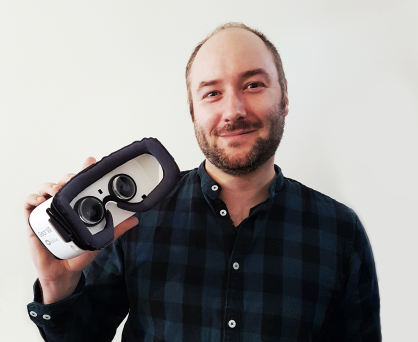
Ocean Rift is a Virtual Reality (VR) experience that immerses the user in a vivid underwater world. It gives the user the experience of swimming with various aquatic creatures including dolphins, turtles, sea snakes, rays, sharks, whales and even extinct prehistoric reptiles. The app lets users select from a series of habitats, ranging from coral reefs and shipwrecks to lagoons, the deep sea and even Atlantis. They can interact with creatures animated by a state-of-the-art artificial intelligence system developed specifically for the project, which aims to produce life-like animation and behaviour.
Ocean Rift was an invite-only launch title for most major VR headsets between 2014 and 2019, including the Samsung Gear VR, Oculus Rift, HTC Vive, Google Daydream, Xiaomi Mi, Oculus Go and Oculus Quest. With an estimated 1,800,000 downloads it has received consistently positive reviews from users and developers. The app was based on underpinning research in VR best practices and procedural animation, including new computer graphics and artificial intelligence techniques for producing life-like animation and behaviour. Recent global benefits have been generated from its use in educational and healthcare contexts. VR has grown rapidly from a hobbyist emerging technology to a multibillion-dollar industry.
The research undertaken at Bangor University has been at the forefront of this process.
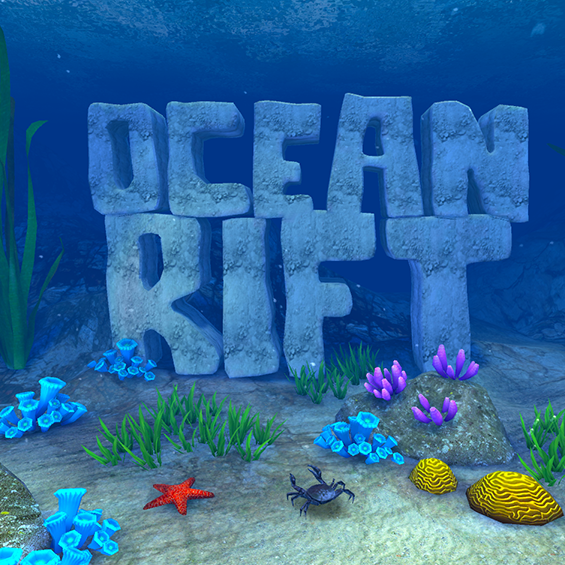
Ocean Rift started as an experiment to see how far I could take emerging virtual reality technology to make someone feel like they are underwater. You get a real sense of the scale and majesty of a Blue Whale when you swim alongside it in Ocean Rift, which is something you can’t get in any other medium. The education feature enhances this even further, allowing you to learn about life in Earth’s oceans while being immersed in them. I’m also proud to have worked with partners to develop the narrative in Welsh, enabling Welsh-speaking children and adults to learn about aquatic life in this new and exciting way’
During 2009-2020, Bangor University’s Ocean Energy Research Group pioneered an understanding of the opportunities and challenges faced by the international tidal energy industry, in converting the energy from less energetic ‘second-generation’ tidal energy sites.
Researchers identified a unique set of challenges and opportunities relating to less energetic tidal energy sites. The loadings on turbines at these sites allow for lower-cost devices. There is also increased sea space available for lower energy sites compared with high energy “hot spots”, and more opportunities for grid connectivity. However, less energetic sites are generally in deeper, more exposed environments, and so the resource is influenced by wave processes.
As a direct result of this research, the tidal energy industry has evolved by developing smaller “second generation” tidal devices (100-200kW) that are now competitive in the UK, and created a pathway for international development via reassessment of the tidal energy resource of countries previously considered below the threshold of financial viability.
Bangor-led research into tidal asymmetry and misalignment of waves and tides (making energy more challenging to exploit and putting tidal turbine structures under stress) has led to the development of new wave-tide interaction engineering models and has informed the design of state-of-the-art laboratory facilities to directly quantify/model the forces acting on scale models of tidal turbine structures when tides and waves are out of line.
This research has re-focussed the tidal energy industry, moving towards the development of less energetic tidal sites that are complementary in the timing of the aggregated power output. Our research has directly informed the development of new wave-tide interaction engineering models, the design of state-of-the-art laboratory facilities (to simulate the forces of oblique tides/waves on scale-models of tidal turbine structures), and the selection criteria for second-generation tidal energy sites and tidal turbine design.
The Global Positioning System (GPS) and other global navigation satellite systems (GNSS) are embedded in the world’s critical infrastructure, from aviation and shipping to telecommunications and smart phones. Despite economic, social, and governmental dependence on satellite navigation and precise timing, GNSS are vulnerable to failure and security threats. Professor David Last, and other members of the Bangor University Radio-Navigation Group, have worked with US, EU, UK and South Korean governments to develop and implement ‘Enhanced Loran (eLoran)’ as a back-up in the event of GNSS failure.
Last and his team have been fundamental to the international development of Enhanced Loran (eLoran), and were the first to implement a large scale working prototype in the UK in 2015. The eLoran system served enhanced maritime navigation and delivered precise timing for telecommunications users across the UK and beyond.

The UK, US and South Korean governments have directly invested in the development of technology developed collaboratively by Bangor, leading to a vital economic safety-net for mariners and cross-sector users in relation to trade and defence.
Researchers
- Professor David Last
- Dr Paul Williams
Related Research
Related Academic Units
Most Recent Research in this Area
Submitted Case Studies
Summary
Retail financial services markets have long been the focus of considerable regulatory attention. As these services have become ubiquitous, how these products are priced and used has significant societal implications.
Professor Ashton provided the first assessment of the loyalty penalty. He looked at how loyal customers pay more than new customers; and complexity costs, how providers raise prices of complicated products, within UK retail financial services markets. These findings have informed UK and EU regulations.
Ashton advised on work considering complexity for the European Commission’s Directorate General for Health and Consumer Protection. The subsequent directive has estimated benefits between €2,352,210,000 (04-2013) and €4,582,900,000 (04-2013) for EU personal current account holders between 2016 and 2026. The UK’s Financial Conduct Authority has reported that its policies addressing the loyalty penalty and informed by Ashton’s research, will benefit UK customers by £261,000,000 annually.

Researchers
Related Research Cluster
Related Academic Unit
Summary
Nikolopoulos’ research focuses on Predictive Analytics employing the Theta forecasting method he initially developed. His empirical research at Bangor University has led to significant efficiency savings and enhanced decision-making for multinational companies by improving forecasts. Nikolopoulos’ forecasting models have proven accuracy and superior computational speed in international competitions. Uber has applied Nikolopoulos’ Theta models worldwide since 2017 for their financial forecasts with an efficiency saving of over approximately USD750,000,000 (04-2020) per annum. BOSCH and Amazon Web Services use Theta for forecasting product demands and sales. The wider use of Nikolopoulos’ Theta Method within commerce is highlighted by over 6,500,000 downloads of the implementation of the Theta Method within the freeware

Researchers
- Professor Konstantinos Nikolopoulos
Related Academic Units
Related Research
Summary
Research at Bangor University has significant regulatory change in interchange and merchant fees of payment cards in the European Union (EU) between 2013 and 2016. Acceptance of card payment platforms by both cardholders and merchants was essential for increasing the use of electronic payments in the EU to integrate payment systems for EU countries. By demonstrating that lowering interchange and merchant discount fees would be beneficial to all parties and by providing evidence critical to EU decision-making concerned with regulatory changes, Carbo-Valverde’s research led to reduced fees from June 2015. These changes benefitted all merchants that use electronic payments, and all cardholders and financial institutions across Europe, with annual savings between 2015 and 2017 of EUR1,200,000,000 (03-2020) for EU merchants and EUR587,000,000 (03-2020) for EU consumers.The findings are also directly benefitting other, non-EU jurisdictions.

Researchers
- Santiago Carbo-Valverde
Related Academic Units
Related Research
Most Recent Research in this Area
Submitted Case Studies
Research into ‘veillance’ (a scholarly term for mutual watching) highlighted the harms to citizens arising from digital profiling by state and commercial entities including privacy violations and exposure to targeted online disinformation.
Following revelations by Edward Snowden, the US National Security Agency whistle-blower, of routine mass surveillance of people’s digital communications by intelligence agencies to identify security threats, this issue became a wider public concern.
This research enables civil society to develop a better understanding of how to hold secretive state and commercial surveillant entities publicly accountable.
Under the umbrella term veillance, the research identified three clear processes of mutual watching, and an understanding of its power dynamics which include:
- watching from positions of power (surveillance),
- watching from positions of powerlessness, including peer-to-peer watching and watching the watchers to hold them accountable (sousveillance), and
- blocking being watched (counterveillance).
The research has directly informed a range of national and international stakeholders and policymakers, including the UK parliament; the EU; the Indian and Jamaican Supreme Courts; the South African High Court; British and Irish professional journalist practices; nongovernmental organisations; and the wider public via global media coverage.

State and commercial surveillance of digital communications is complex and abstract. Policymakers, lawmakers, civil society and the public were unaware of how their online behaviour feeds these practices. They were also unclear on how to resist and/or hold surveillant organisations publicly accountable. This research impacted national and international bodies by illuminating the causes of, and problems with, such ‘veillance’, including the power imbalances thereby guiding and enabling more informed solutions’.
Research on ‘Emotional Artificial Intelligence’ (Emotional AI) has revealed a pressing and global need to consider ethical dimensions of developing technologies that gauge and interact with affective and emotional states.
The research has influenced governance, policy, business models and creative artefacts in the design and ethical application of emergent technologies globally.
Impacts include co-creation with US stakeholders of the world’s first ethical benchmarks for emotional AI; informing global design standards and protocols for emotion and affect-based technologies; clarifying digital privacy rights regarding emotional AI for the United Nations High Commissioner for Human Rights; distilling multi-stakeholder perspectives to guide decisions on emotional AI ethics across UK Government departments, regulators and US/UK companies; and shaping an international festival programme, inspiring artists and informing citizens.
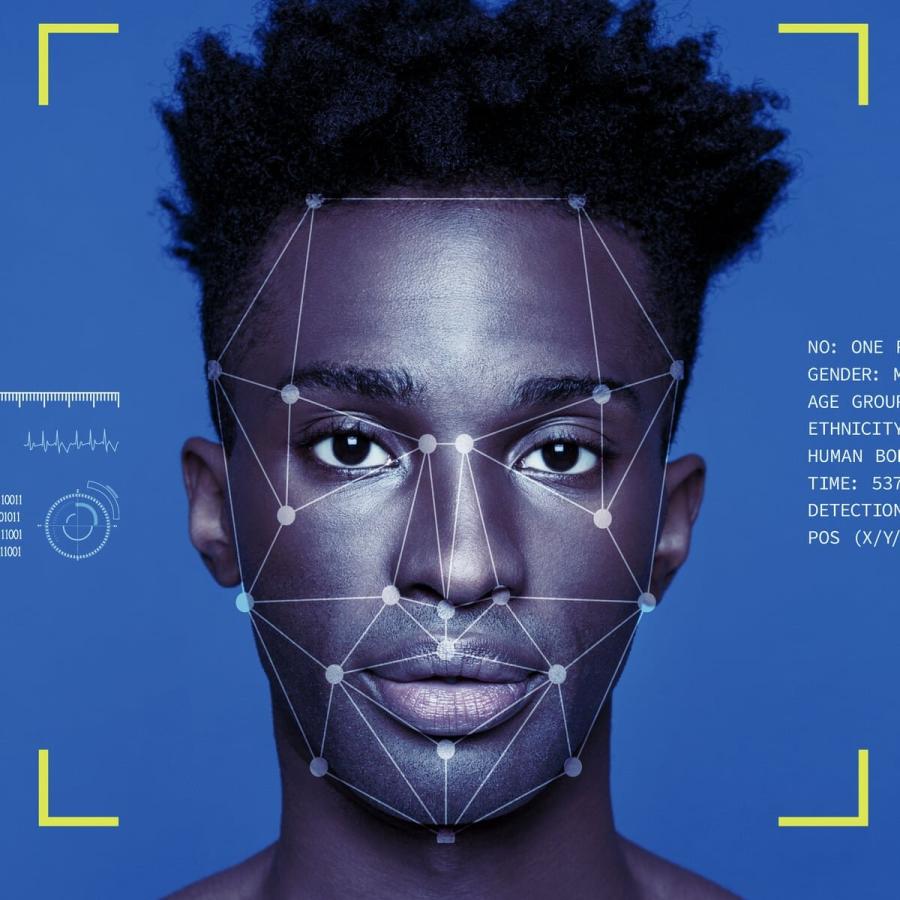
As we begin to interact with technologies by means of the body and intimate dimensions of human life this research helps solve how these technologies can be shaped to serve, enhance and entertain, rather than exploit’.
Most Recent Research in this Area
Submitted Case Studies
Research into the diets of soldiers has demonstrated that illness, injury and underperformance are significantly influenced by deficits in the soldiers’ diet. This has led to a change in Army policy, implementing additional dietary energy and vitamin D intake.
The Bangor team demonstrated that arduous military training weakened the immune system and increased infection in Army recruits compared to age-matched controls. 7% of recruits were shown to suffer at least one clinician-diagnosed infection during initial Army training, with each infection leading to an average of three days’ training lost. It also showed that the high physical demands of Army training increased the risk of musculoskeletal injury resulting in further lost training days and medical attrition, at significant financial cost.
Subsequent laboratory and field studies showed that inadequate nutrition was identified as an important and significant contributor to the increased infection and musculoskeletal injury observed during arduous military training.
Further research determined that soldiers provided with an energy-rich training supplement each evening as a ‘fourth meal’ were prevented from the detrimental effects on body composition, physical performance, immune and bone health of training in an energy deficit. Research on the iron and vitamin D status of male and female recruits also found that recruits with inadequate levels of vitamin D had poorer physical performance, poorer immune function and were more likely to suffer respiratory infections and injury than those with optimal vitamin D status. The team were consequently commissioned to develop and investigate the effectiveness of winter vitamin D supplementation.
This research showed that vitamin D supplementation was effective in reducing infection burden and by achieving vitamin D sufficiency in almost all recruits [greater than or equal to 95%] informed the previously unknown correct doses for future Army supplementation.
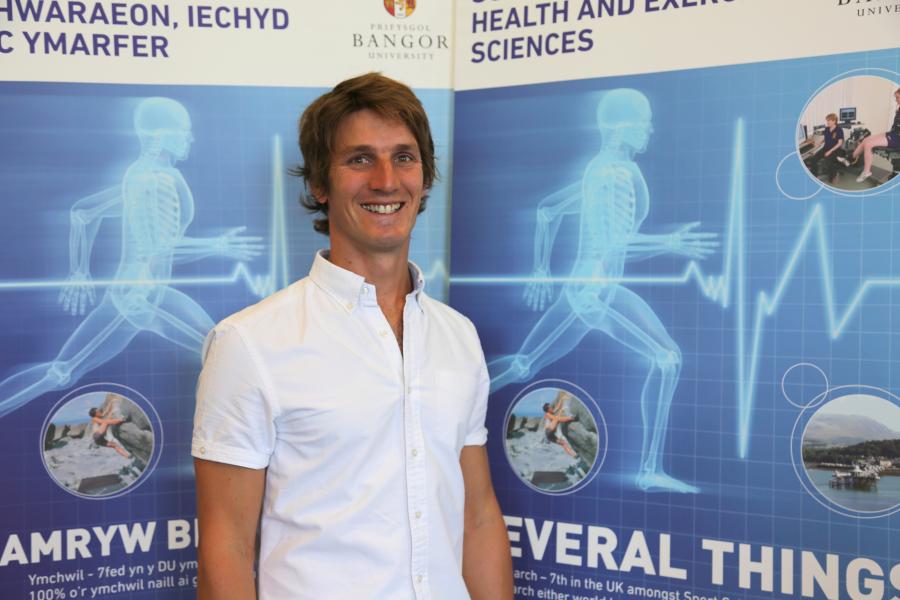
The British Army has a duty of care to all its soldiers, which includes provision of adequate and appropriate nutrition. Our research established on behalf of the British Army that illness, injury and underperformance during military training are partly explainable by deficits in the recruit’s diet. A consistent feature in all this work is that the beneficial impacts occurred at the point of the research, and nutrition policy changed to benefit the Army and its personnel.
Research into the development profile of the UK’s most successful athletes led to changes in UK Sport’s approach to talent development programmes.
Bangor-led research compared the life biographies of serial-medalling, super-elite athletes against those of matched, non-medalling athletes. Participants were 32 former GB Olympians. Sixteen of these were super-elite athletes who were multiple gold medallists at more than one Major Championship, such as the Olympic Games or World Championships. The other 16 elite athletes were funded, international, athletes who had won championship medals but had not medalled at Major Championships.
The results revealed important commonalities and differences between the two groups in terms of demographic, practice, training, and competition history variables, and psychosocial experiences, development, and personalities.
Super-elite athletes were more likely than elite athletes to have: experienced a significant negative life event during their development years; been ruthless and selfish, and obsessive and perfectionistic, in the pursuit of the sporting career; been both mastery- and outcome-focused; used total preparation and/or a counterphobic attitude to maintain higher levels of performance under pressure; come back from severe performance setbacks during adulthood and experienced significant career ‘turning points’ that led to enhanced determination to excel; experienced more diversification coupled with extensive sport-specific practice and competitions during youth sport; and continued performance improvement over more years during adulthood.


This research provided a world benchmark for talent identification and development research. The findings of the Great British Medallist Project led to increased investment in sports intelligence and capture of data regarding pathway athletes. These changes have had far-reaching consequences in terms of national governing bodies’ ability to interrogate their talent-related data, case conference their pathway athletes and design more appropriate talent development programmes.
Most Recent Research in this Area
Submitted Case Studies
Bangor University research undertaken by two AHRC-funded projects on ‘European Travellers to Wales: 1750-2010’ involved the discovery, study and interpretation of almost 500 accounts by travellers from all over Europe.
Extensive public engagement activities including a travelling exhibition, the creation of freely available educational materials and a variety of on-line resources has helped the public to better understand Wales. The research provided completely new resources for studying Wales, broadening travel writing to encompass more than English-language portrayals of Wales.
Working with heritage partners on the ‘Journey to the Past’ website enabled the creation of multi-media resources which include themed trails and a virtual reality experience of Tintern Abbey all of which have been used as good practice examples with other heritage organisations across the UK.
The resulting research also included the co-authored book ‘Hidden Texts, Hidden Nation’, which makes an original contribution to studies in travel writing, providing a brand-new perspective on Wales.
The creation of a database of previously forgotten or unknow travel texts about Wales in various European languages benefitted researchers preparing the winning bid to recognise the Slate Industry of North Wales as a UNESCO World Heritage Site. Govannon Consultancy, who coordinated the bid along with Gwynedd Council maintain that this research greatly enhanced the application.
The research has enhanced the understanding of Wales as a travel destination for both tourists and the tourism sector, providing new promotional materials disseminated by many stakeholders including Visit Wales.

We found previously unstudied accounts providing insights into how others have viewed Wales. Some of the writing is in diaries or letters, and many were not intended for publication. The breadth of the topics discussed shows a long-standing interest in Wales. Not all the visitors were tourists in the modern sense, some were refugees or on business, but they all provide insights into Wales by visitors from other European nations.
The material covers a period of great change in the landscape, culture and heritage of Wales and modern-day visitors will be able to 'experience' those changes through the eyes of their travelling predecessors, revealing a unique view of Wales to a new generation of travellers from Europe, but also casting a new light on the perception of Wales over time for visitors from the United Kingdom and other parts of the world.
This research was jointly undertaken with Swansea University and the University of Wales Centre for Advanced Welsh and Celtic Studies.
Bangor University research has significantly developed the understanding of Welsh language use and language transmission impacting Welsh Government language policy across a range of sectors.
Bangor-led research analysed Welsh language use within society with an emphasis on understanding how Welsh speakers use Welsh and the barriers that affect language usage within communities. This enhanced understanding is essential in terms of implementing effective language planning strategies to create sustainable Welsh language communities and revitalise communities that need specific language resurgence.
Researchers also explored the role of bilingualism and education within the language revitalisation agenda in Wales. Innovative e-resources were created to maximise language progression in the educational sphere.
This research has significantly influenced Welsh Government priorities in language planning and has contributed to the evidence based available. In addition, the researchers have been regularly approached to provide expert input to key WG reports and evaluations, for example, Process Evaluation of Cymraeg for Kids: final report.
The Welsh Language Commissioner regularly refers to this research to support decision making and to inform public bodies legally required to adhere to Welsh Language Standards. This research underpins a co-produced report assessing the use of Welsh within the voluntary sector in Wales which is referred to in the Welsh Language Commissioner’s training sessions for third sector organisations.
A key development from this research is the co-production of a training toolkit which supports the work of Mentrau Iaith initiatives to promote the use of Welsh in the community. The toolkit contains valuable examples of innovative programs that can be adapted to work in various communities in Wales.
This research also identified the need for enhanced availability of Welsh materials for teenagers and young people, resulting in the development of unique multimedia Welsh-medium Sociology materials and new standardised terminology. These are used to teach A Level, Welsh Baccalaureate, and degree-level Sociology across Wales.
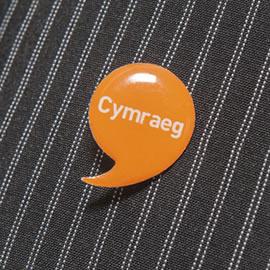
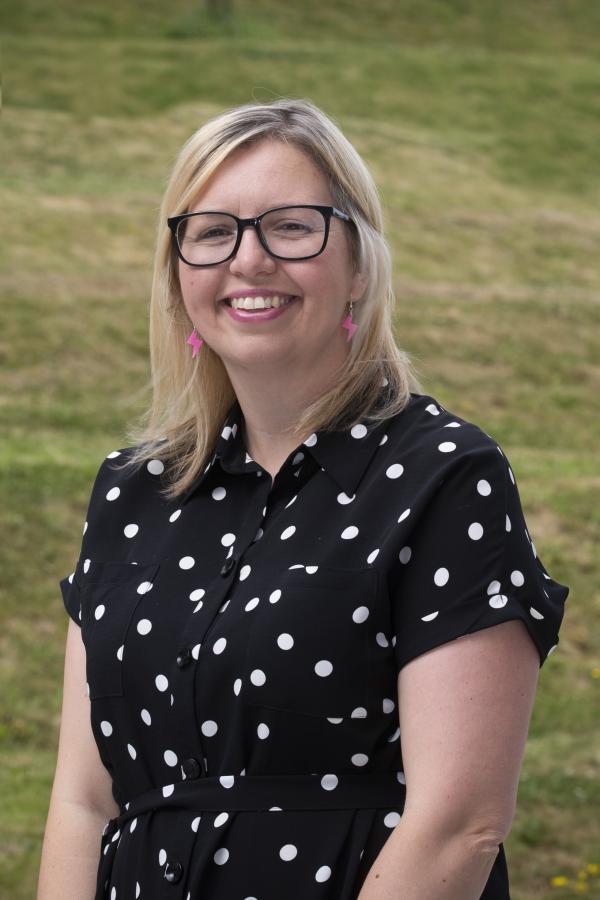
Our research impacted on key Welsh Government language policy areas including community language usage and intergenerational language transmission where research findings have directed how Welsh Government and the office of the Welsh Language Commissioner approach the ongoing revitalisation of the Welsh language as outlined in the current Welsh language strategy, Cymraeg 2050.
Bangor University research in the field of language technology for Welsh as a less-resourced language has enabled the development of online resources, transformed the use of Welsh in a wide range of digital environments, has helped companies develop new products, and has influenced policy in Wales and on a global level.
Bangor’s Language Technologies Unit (LTU) developed Cysgliad – a software package that includes the Cysill Welsh-language grammar and spelling checker as well as the Cysgeir collection of dictionaries. The Welsh Language Commissioner credited Cysgliad with helping the public to gain confidence in writing Welsh as well as being an essential aid in education, for translators and professional administrators. These tools are in daily use in Wales and the Welsh Language Commissioner has mandated all public authorities to install Cysgliad on their computers.
In 2020, the Welsh Government sponsored free Cysgliad licences for the public, schools and SMEs to help during the COVID-19 pandemic. During the first six months of the offer, an additional free 4,125 licences were downloaded. Since August 2013, the Ap Geiriaduron, including Geiriadur Termau’r Coleg Cymraeg, has been downloaded 274,260+ times.
With many people in Wales using devices such as Alexa and Siri in English, the development of the Macsen voice assistant has created new possibilities to similarly use speech technology in Welsh. Macsen can be asked to do various tasks or ask for information, for example, to turn the light on or off, get the news, weather, play music of Welsh language bands, or information from the Welsh language version of Wikipedia.
LTU research in Welsh speech technology has improved the lives Welsh speakers that are about to lose their ability to speak as a result of diseases such as Motor Neurone Disease or Throat Cancer. Through a partnership with the NHS in Wales, the LTU created a platform that allows patients with the aid of speech therapists to create their own personal synthetic voice in Welsh and in English. The project was the subject of a documentary program ‘Achub Llais John’ and was awarded a Giving Voice Award in 2019 by the Royal College of Speech and Language Therapists.
LTU research has also led to work with local companies to enhance existing and develop new products and services. For example, a translation company in Caernarfon benefited from LTU’s research to create their own machine translation software.
LTU researchers have served as advisors on the Welsh Government Welsh Language Technology Board, helping to inform the approach to language revitalisation through language technologies. They also advised UNESCO’s LT4All initiative and the successful EU Parliament Resolution on Language Equality in the Digital Age.
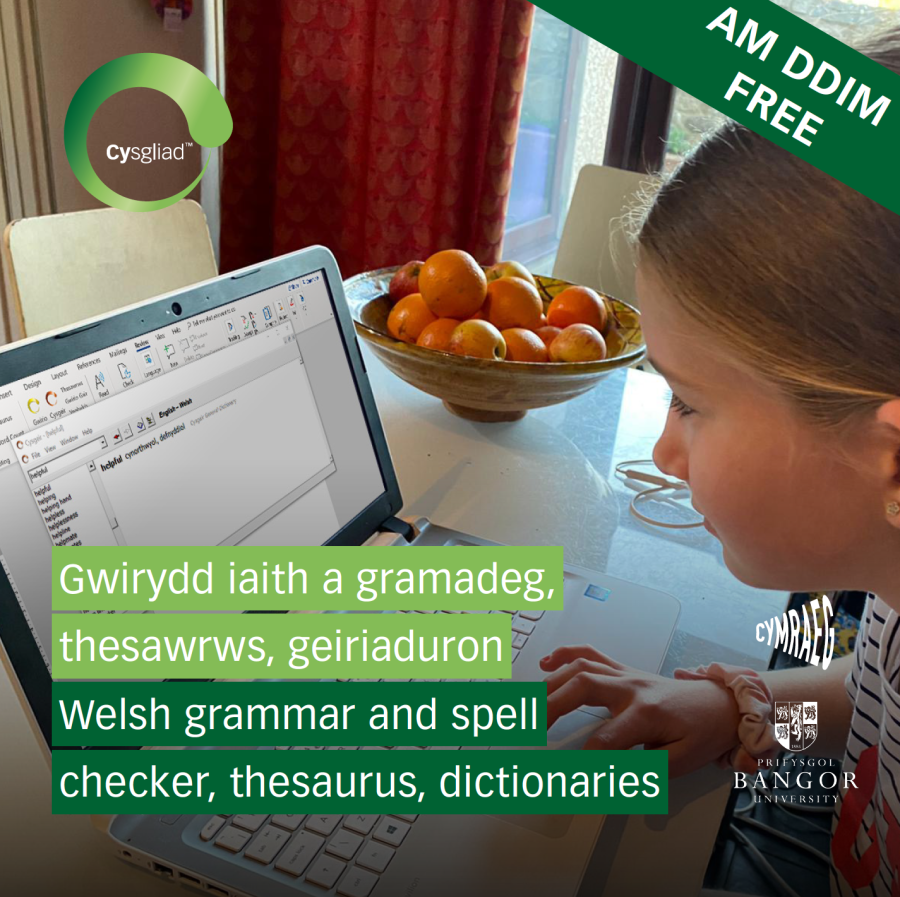
Research-led development of resources has helped to promote Welsh as a modern, forward-looking language, as well as enhancing practice in industry and informing government policy. Impact has extended beyond Wales, influencing the digital language equality roadmap internationally and informing the practice of global concerns.
Most Recent Research in this Area
Submitted Case Studies
Research into late medieval literature has been part of the University’s work since its inception in 1884.
More recently, research into medieval English literature has demonstrated how relevant it is to the modern world by expanding global access to medieval texts and archives; influencing and shaping English literature in primary and secondary school curricula in Wales and England; influencing and informing the practices of cultural heritage institutions; and demonstrating, through varied media, the continued relevance of a crucial part of literary heritage to modern concerns among local, national and international audiences.
The Material Texts research cluster in the School of Languages, Literatures and Linguistics, which encompasses the Stephen Colclough Centre for the History and Culture of the Book, the Centre for Arthurian Studies (CAS), and the Institute of Medieval and Early Modern Studies (IMEMS), has fostered a wide range of research in the field of medieval literature, revealing the enduring relevance of these texts for contemporary audiences.
Research at Bangor has had a significant and lasting impact on global access to the oldest copy of Chaucer’s Canterbury Tales which provides scholars and the general public (worldwide) with online access for the first time to the Hengwrt copy of the Canterbury Tales via the NLW’s Digital Mirror and since 2014 it has received 23,345 views.
Research in Arthurian studies has helped shape the new creative learning curriculum in Welsh and English schools, and the educational policy for the Welsh government in its delivery of secondary school teaching and the CADW ‘continuing education’ programme. Overall research in medieval literature has also changed the A-level curriculum and teachers’ approaches to early literature.
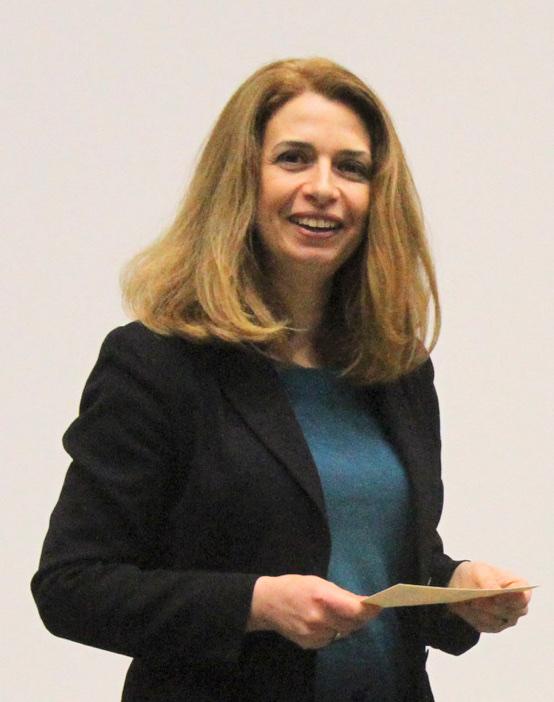
Arthurian and non-Arthurian romance was disparaged by the school-teachers of the post-medieval period as not suitable for gentlewomen and ladies (for example, on the grounds of adultery and manslaughter abounding in the key medieval romance ‘The Death of Arthur’ by Thomas Malory). Yet the appeal of the legends across time, linguistic and geographical locations has been such, to the present day, that re-introducing this fascinating area of study to the curriculum is hugely important. We have seen significant increases in pupils’ engagement with literacy, and the public’s interest in the legends has never been stronger.’
Pioneering research into translation, creative writing and poetry criticism from Wales in the English language has influenced creative practice and raised local and international audiences’ awareness of Wales’ bilingual literature.
The connection between translation, intercultural understanding and literary creativity are brought to the fore through the novels of Alys Conran, Zoë Skoulding’s poetry and her research into poetry translation as a creative practice, and Carol Rumens’ poetry and poetry criticism.
Bangor research has increased awareness of how translation, as a topic and a practice, is a means to enhance public awareness of their culture. Translation is also a way to develop a new understanding of Wales’ dual but shared identity, language and culture. Media attention singled out how the bilingual publication of Alys Conran’s debut novel Pigeon and its reception foster transcultural creativity, and Literature Wales now uses it as an example of how the Wales Book of the Year prize 'increases the perceived value of Wales’s literature amongst our citizens and those of other nations'.
Cross-cultural influences and cultural understanding are central to Rumens’ poems. Rumens’ collected poems have been published in the USA and her weekly blog for the Guardian Online has an international influence. The blog engages with global poetry networks, often presenting poetry from other cultures. It is discussed on social media by poets and readers of poetry across the English-speaking world. Her selection and in-depth discussion of individual poems are informed by her high-profile work as a poet and translator. She highlights the capacity of online and social media to transcend national boundaries, stimulating discussion between non-academic readers of poetry and poetry in translation on several continents. She also explores with schoolchildren via lectures and included as part of AQA’s GCSE English Literature syllabus from 2017 onwards.
Working in English in Wales's bilingual context, Bangor University researchers have engaged with audiences around the world via prestigious local, international and virtual platforms. Their practice-based research enacts, reflects and strengthens cross-cultural relationships through creative writing and criticism.
Skoulding’s Hidden Rivers ESRC Impact Acceleration Account project involved citizens in remapping Bangor through poetry walks along the culverted Afon (River) Adda, including groups such as the North Wales Society for the Blind and schoolchildren at Ysgol Glanadda. Comments from local people in both Welsh and English about their changed perceptions informed a collaborative poem sequence in her collection Footnotes to Water, which later won the Wales Book of the Year Poetry Award 2020. The power of this work, as observed in Poetry Wales by Dai George, is that local people are central to the creative process as they see their city from a new perspective.

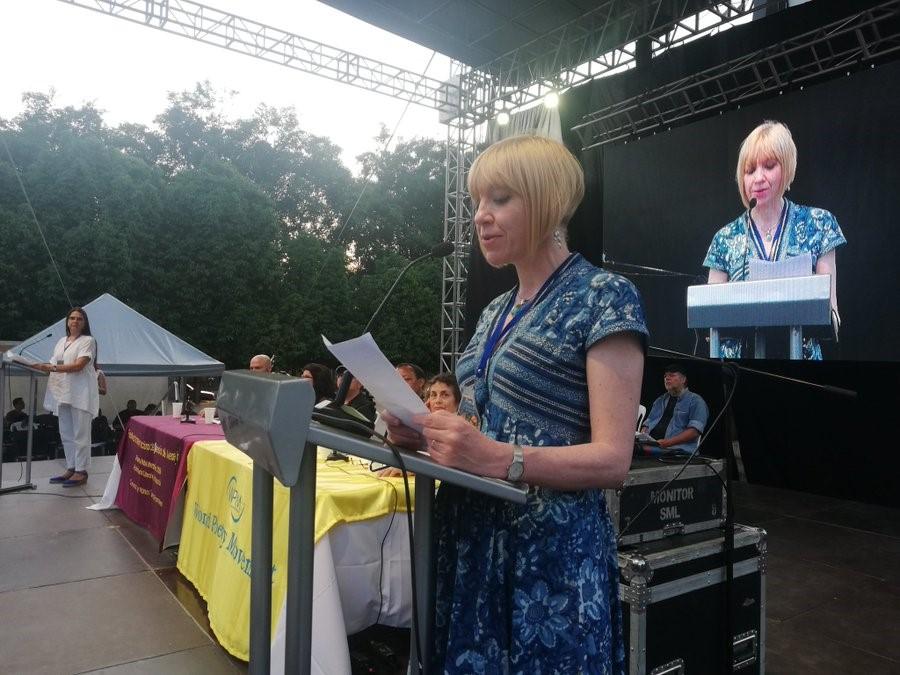
Writers at Bangor University contribute to local and international audiences’ awareness of Wales’s bilingual literatures. Because we live and work in a bilingual environment, we are attuned to the diversity of languages in other cultures and the connections that can be made between them..
Researchers
- Professor Zoë Skoulding
- Professor Carol Rumens
- Ms Alys Conran

